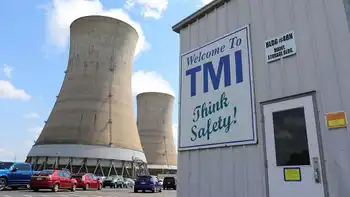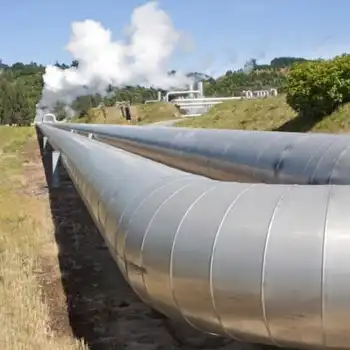An electric vehicle revolution
OTTAWA, CANADA - One in every 20 new cars sold in Canada should be electrically powered within a decade, say members of a task force that is to deliver a progress report to the Harper government about the future of plug-in vehicles.
The group was set up by the government last winter to design Canada's Electric Vehicle and Technology Road Map for shifting the transportation industry away from fossil fuels.
"It's going to be an electric vehicle revolution," said Michael Elwood, chairperson of the task force and vice-president of marketing at Azure Dynamics, which specializes in electric and hybrid electric drive technology.
"Hybrid electric, plug-in hybrid electric and electric vehicles are all part of the equation," he said.
The group includes a wide range of stakeholders, including automakers Ford and General Motors as well as the Canadian Auto Workers union, academic institutions such as the University of Manitoba and utility companies Hydro Quebec and Manitoba Hydro. It's expected to submit its final recommendations next February.
"Anything is possible and everything is being worked on and the sooner we dedicate resources to the advancement of this (industry), the better," said Elwood, in a telephone interview.
The group developed its five per cent target last summer, after reviewing a technical analysis of the industry submitted to Natural Resources Canada in June. The goal would be the equivalent of 80,000 to 125,000 electric vehicles being sold each year.
"Electricity may be the only fuel for land transportation that can substantially replace oil products while continuing to provide for the amount of movement of people and freight that is essential for modern society," read the analysis, written by Bernard Fleet, James K. Li and Richard Gilbert.
"Oil products now fuel 95 per cent of world transport activity and transport activity consumes 60 per cent of oil production. Both shares are higher in Canada. The need to reduce demand for oil, to avert scarcity and high prices is gathering urgency."
A Canadian industry spokesperson said the Big Three North American car manufacturers are moving toward new hybrid or electric technologies in their models, but progress depends on consumer demand, securing loan guarantees from the government during an economic downturn, and the price of gasoline at the pumps.
"The industry is almost in the midst of the biggest revolutionary technology turnaround in its history," said Mark Nantais, president of the Canadian Vehicle Manufacturing Association. "Probably one of the worst nightmares would be to bring forward this technology in a low energy cost environment."
Bob Oliver, director of the transportation program at Pollution Probe, said some of the main challenges include researching better technologies for more powerful, longer-lasting batteries and ensuring that there is sufficient infrastructure in place for people to charge their vehicles on the road. But he believes it's possible to exceed the five per cent target.
"It's just a question of whether or not we're able to maximize the environmental and the social and the economic benefits for Canada en route to this target," said Oliver. "I don't think we're at the stage now where we're talking about regulation or hard policy or incentives. I think what we're talking about is making sure that the right stakeholders are speaking to each other so we can make it happen."
Thierry Vandal, president of Hydro Quebec, made his own case for electric vehicles, noting that they had the potential to reduce North American demand for oil by 70 per cent, while increasing electric power demand by only 15 per cent. Vandal said plug-in cars were on the way because of "major breakthroughs" in battery technology. He added the utility company was actively participating in new research.
Related News

West Coast consumers won't benefit if Trump privatizes the electrical grid
LOS ANGELES - President Trump's 2018 budget proposal is so chock-full of noxious elements — replacing food stamps with "food boxes," drastically cutting Medicaid and Medicare, for a start — that it's unsurprising that one of its most misguided pieces has slipped under the radar.
That's the proposal to privatize the government-owned Bonneville Power Administration, which owns about three-quarters of the high-voltage electric transmission lines in a region that includes California, Washington state and Oregon, serving more than 13.5 million customers. By one authoritative estimate, any such sale would drive up the cost of transmission by 26%-44%.
The $5.2-billon price…




